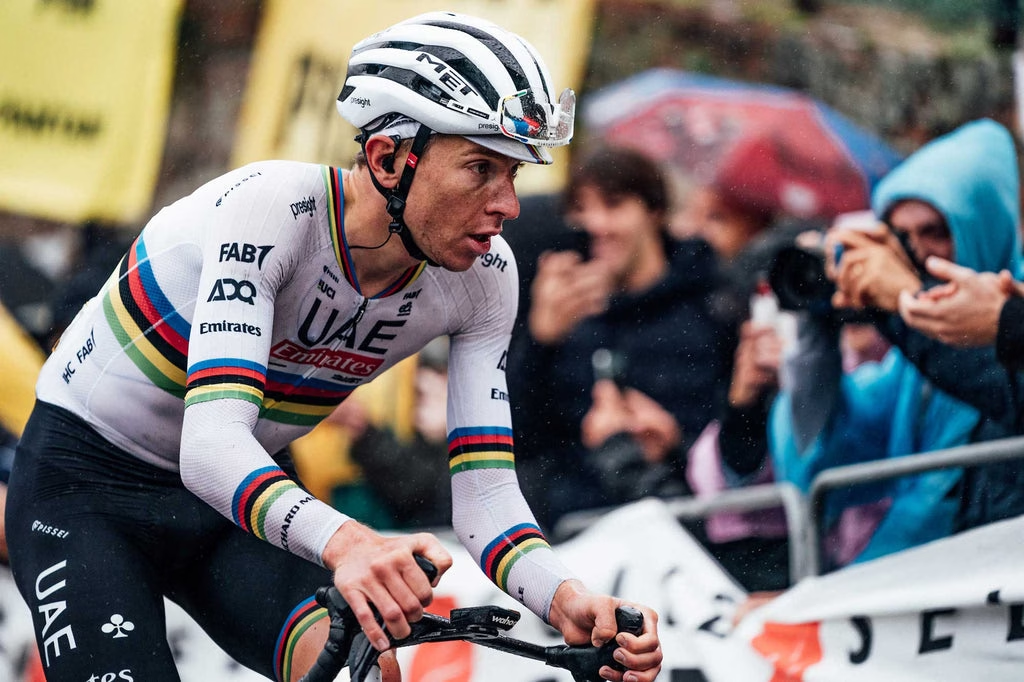An average rider salary of half a million, a 33% increase in the total men’s WorldTour budget since 2022, the Women’s WorldTour budget doubling to €70 million, it seems like professional cycling has never had it so good. It’s true that these figures – recently revealed by La Gazzetta dello Sport – paint a rosy picture; bigger salaries means more budget from sponsors who are clearly seeing a return on their investment. But is it quite that simple? Does more money mean better racing? Is this a true indication of the state of the sport?
It’s firstly worth noting that the average salary in both the men’s and women’s WorldTours are skewed by a select few, extremely well-paid individuals. The most notable of these is three-time Tour de France winner and current world champion Tadej Pogačar, who was reportedly being paid in excess of six million euros by UAE Team Emirates at the start of the year – a number that will no doubt have increased after his exploits this season. Primož Roglič is also estimated to be on around €4.5 million at Red Bull-Bora Hansgrohe while Jonas Vingegaard is at €4.0 million with Visma-Lease a Bike. On the women’s side of the sport, Demi Vollering was rumoured to have been offered one million euros from UAE Team ADQ at the start of this season – though this was never substantiated and she has since signed for FDJ Suez.
With these high salaries also comes long contracts for the best riders. Pogačar is signed with UAE until 2030, while Van Aert revealed he has agreed to ride for Visma until the end of his career. Long-term job stability isn’t a worry for the best of the best in the WorldTour, but not everyone is quite so lucky. As of November this year, there was an estimated 100 riders still without a contract in the men’s peloton – these included some well-established professionals including the likes of Nairo Quintana, Elia Viviani and Esteban Chaves. One or two year contracts are still the norm for most – guaranteed employment and the wealth enjoyed by the top riders is not necessarily trickling down.
This also has an impact on the racing itself. Teams who have the most money to buy up the best riders can often dominate and neutralise – last year saw Visma-Lease a Bike (then Jumbo-Visma) scoop up all three Grand Tour victories, while this year UAE Team Emirates have had a monopoly (though mostly through one outstanding rider.) When the best teams and riders are winning…

